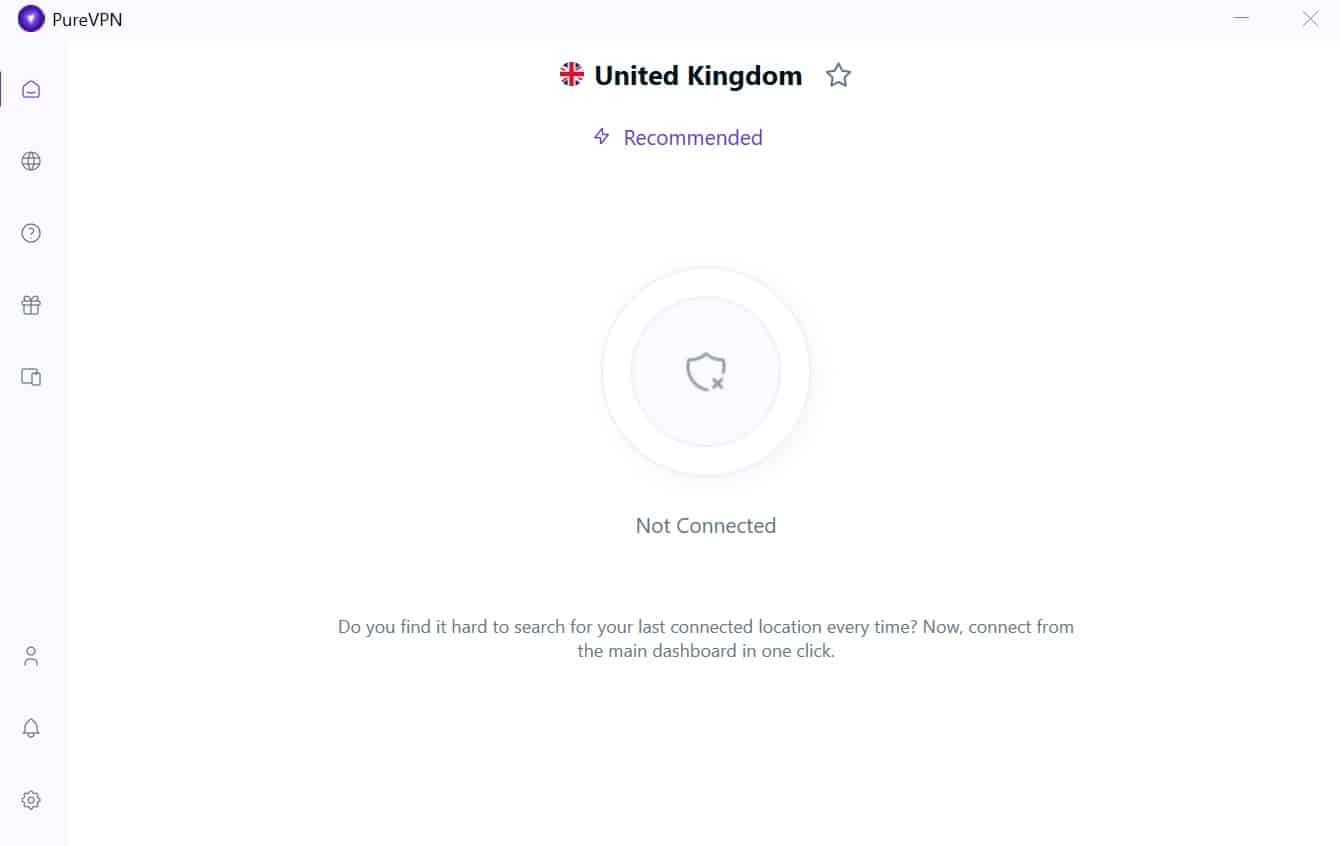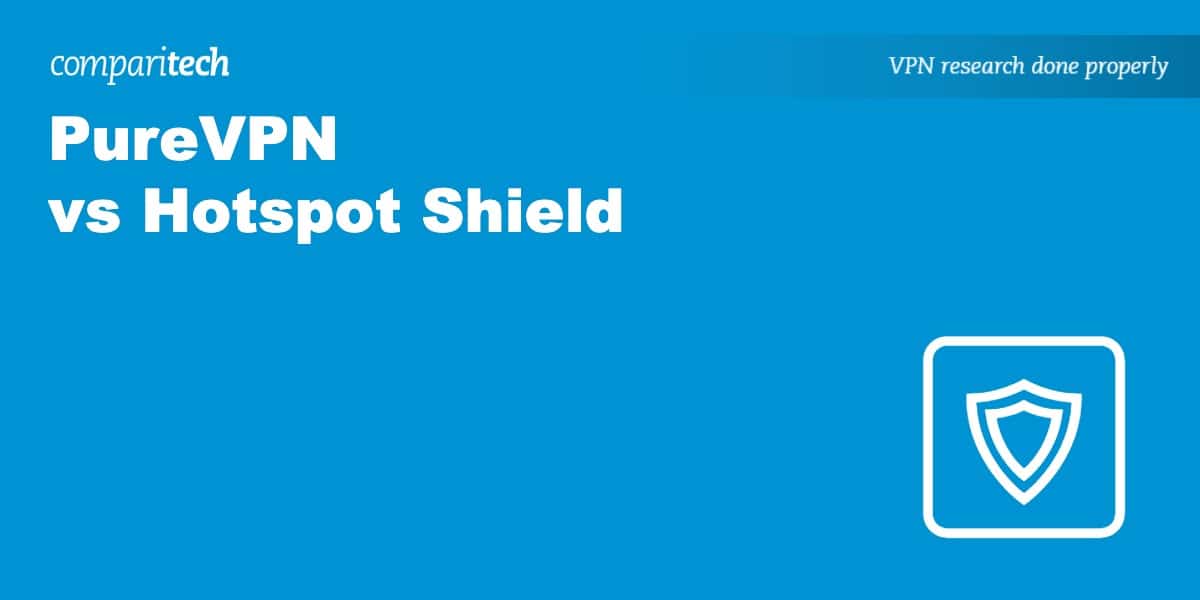Trying to decide between a budget-friendly or feature-filled VPN service? It can be an overwhelming decision – but no fear! We’re here to compare two top providers – PureVPN and Hotspot Shield – on pricing, features, streaming, servers, setup and interface, privacy & security, configuration options, and customer service. Ready to get started? Let’s dive in!
Highlights
PureVPN
|
Hotspot Shield
|
PureVPN vs Hotspot Shield pricing
Looking for a great way to protect your devices without breaking the bank? Look no further than PureVPN and Hotspot Shield. With month-to-month options, you can start as low as $10.19/month with PureVPN or $12.99/month with Hotspot Shield (or $19.99/month with Hotspot Shield Premium Family). But if you want to save even more, check out their longer-term plans. PureVPN offers a two-year plan with an astounding 81% savings. In contrast, Hotspot Shield has annual Premium and Family plans that offer up to 40% off – not to mention the exclusive three-year plan for Comparitech readers with a 77% discount.
Money-back guarantees
PureVPN is the more affordable option, with an impressive 31-day money-back guarantee. But if you want more time to test it before committing, Hotspot Shield’s 45-day money-back guarantee might be your better choice. Either way, rest assured that you have enough time to decide if it works for you – and if not, no worries! You can always request a refund and get your hard-earned cash back.
PureVPN vs Hotspot Shield features
Apps
Hotspot Shield and PureVPN both have browser extensions for Chrome, Firefox, and Edge (PureVPN only), plus apps for all major platforms, including Windows, MacOS, iOS, Android, and Linux.
Simultaneous devices
With PureVPN, you can connect all your devices simultaneously – up to 10! That’s great if you have a lot of tech that needs protecting. And Hotspot Shield isn’t too shabby either – five simultaneous connections are more than enough for most people.
Extras
With split tunneling, users can let specific apps pass through the VPN unencrypted on Android and Windows. But Hotspot Shield has some extra features, like its password manager and spam call-blocking service. And as technology races ahead, PureVPN isn’t sitting still either – it’s already offering Quantum-resistant servers so that data will stay safe even with powerful quantum computers in the mix.
Streaming Ability
If you want to stream without all those annoying performance issues (like lag, buffering, and slow speeds), you’ll be glad to know that PureVPN and Hotspot Shield have you covered. They offer unlimited bandwidth to enjoy as much streaming content as your heart desires. They work great with various versions of Netflix, Hulu, BBC iPlayer, and Sky Go.
Both services allow torrenting on their servers. So if you’re planning on using your new VPN for streaming (or anything else!), PureVPN and Hotspot Shield are more than up for the job!
Do these VPNs work in China?
When accessing the broader internet in China, PureVPN falls short – likely due to the Chinese government’s difficult-to-navigate efforts against VPNs. However, Hotspot Shield is an excellent option for those looking for a way around the restrictions. Configure it to use obfuscated servers, and you’ll be able to browse the web like normal. While its main website may not be accessible in China, customer support can provide an alternate site to get you up and running. To avoid any hassle when setting up your VPN, we recommend configuring Hotspot Shield before arriving in China.
Servers and performance
PureVPN operates 6500+ servers in around 78 countries. Even though that’s less than Hotspot Shield, which offers over 1800 servers in 80 countries, don’t write PureVPN off just yet. Pure provides some unique locations like Afghanistan and Cayman Islands. However, many of their virtual servers can negatively affect speed, which you won’t have to worry about when using Hotspot Shield – one of the fastest VPNs we’ve tested. With an average speed of 127 Mbps, you should be able to stream 4K video without breaking a sweat – but if you’re looking for something more budget-friendly, PureVPN is still a great option with an average of 98 Mbps in our tests.
Setup/Interface
If ease of use is important to you, then setting up either provider should be a breeze thanks to user-friendly apps available on Windows, macOS, iOS & Android devices. Additionally, they include preset configurations, so users don’t have to waste time manually configuring them each time they want to connect worldwide – PureVPN provides manual connections over multiple platforms while Hotspot Shield gives fewer customization options due to its simplified approach.
Both have a user-friendly design that makes it easy to quickly connect to the fastest available server and access the settings. With PureVPN, you’ll find a single quick-connect button on its main page, plus an uncluttered server list accessible via its sidebar. If you need help getting started, an FAQ page can get you up and running in no time. 
On the other hand, Hotspot Shield also offers pretty much the same features, including but not limited to changing protocol, activating a kill switch, and using the Stealth VPN feature.
So whichever one you choose, rest assured both offer straightforward setup processes.
Security
Changing your VPN protocol is quick and easy with PureVPN and Hotspot Shield. Both come equipped with IKEv2, and PureVPN provides a bonus of the OpenVPN protocol for that extra security.
No need to worry about data leaks. Both services use 256-bit AES encryption for maximum protection. Plus, you have the peace of mind that comes along with a kill switch, which is available on both VPNs though at different levels of functionality. PureVPN offers a kill switch for its desktop apps, while it’s limited to Windows on Hotspot Shield.
Both providers operate private DNS servers that ensure your ISP and other third parties cannot see your web requests.
Privacy
Regarding a VPN’s jurisdiction, it’s essential to understand the potential legal ramifications and where government agencies could force a service to start logging data. For example, Hotspot Shield is based in the US – home of the NSA, gag orders, and endless warrants – not an ideal place for a privacy-focused provider. That said, unless the authorities investigate something severe, there’s no reason to assume your data would be compromised. Still, many users may not find this comforting and prefer to use services based in better jurisdictions.
Previously there were many questions about Hotspot Shield’s privacy policy due to its acquisition by online security company Aura. Now it has thoroughly revamped its policy. It specifies that no connection logs or IP addresses are stored alongside any usage logs and device identifiers that don’t allow them to deduce what you do while connected. Any collected data will be shared with Aura, and ads will appear on their free version – although they are not targeted ads.
PureVPN was initially located in Hong Kong until it relocated to the British Virgin Islands in 2021 due to increasing pressure from China’s government regarding its ‘One Country, Two Systems’ policy. While Pure claims it stores no personal data, some did get passed on during an FBI investigation back in 2017. Subsequent independent audits have demonstrated that personally identifiable information is no longer being collected.
Configuration
Both these VPNs exclusively use shared IPs, so your data is mixed with that of many other users for an extra layer of privacy. Additionally, PureVPN and Hotspot Shield both proxy DNS requests inside the VPN tunnel and resolve them using their own servers. This ensures third-party DNS revolver services can’t track the sites you visit, and your ISP won’t know what you’re doing online.
To guarantee your data is safely ensconced within the VPN tunnel, we checked both providers for IP, DNS, and WebRTC leaks. They both passed with flying colors!
PureVPN lets you add a dedicated IP address to your plan for an extra fee. This is an IP address that isn’t shared with other users and does not change.
Customer Service
If customer service is a top priority for you, then PureVPN and Hotspot Shield may not be the best choices. Although both services offer a live chat feature on their website, it’s actually run by bots rather than real people. While this does allow you to access specific guides that interest you, it certainly isn’t the same as genuine 24/7 live chat support.
Fortunately, there is some solace in knowing that both these VPNs have plenty of great resources to help users get the answers they need. Their knowledge bases, setup guides, and handy FAQ sections address common issues.
Conclusion
When it comes to VPNs, Hotspot Shield is undoubtedly a great option for the average user and gets our vote as the winner of this comparison. It’s fast, reliable, able to unlock some of the most challenging streaming platforms, and even works in countries where accessing the wider internet is more complicated than usual. Plus, with its physical servers, rather than virtual ones, if something happened to one of Hotspot Shield’s servers, the VPN team could fix it quickly, whereas PureVPN#s virtual servers could take much longer to troubleshoot.
Hotspot Shield’s logging policy is uncompromisingly clear, which pertains to its base jurisdiction in the US. Also, their subscriptions come with bonus features such as spam call blocking and password manager for extra security and convenience. Overall, Hotspot Shield is an excellent speed, streaming, and protection choice.
See also:









